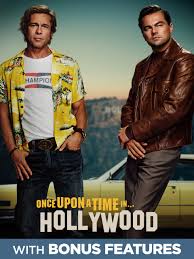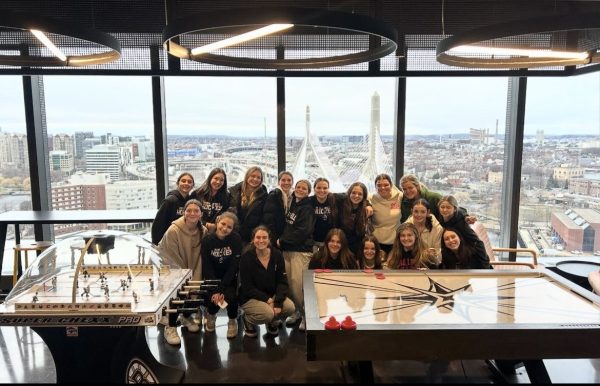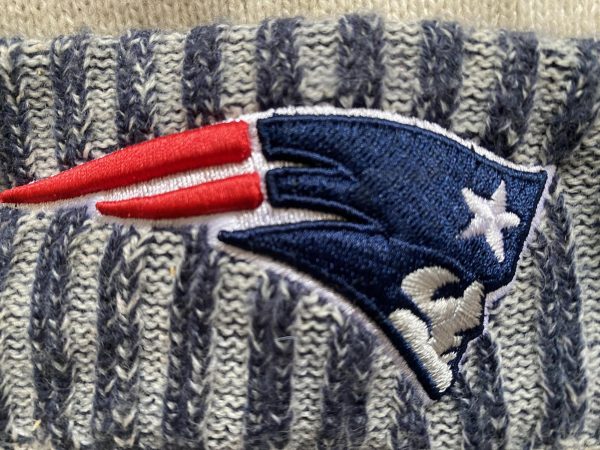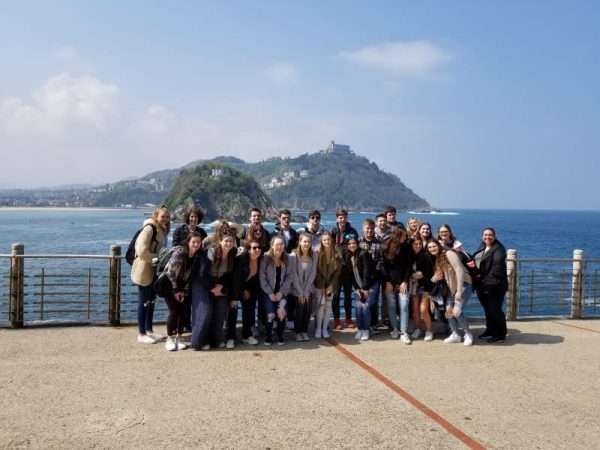Once Upon a Time in Hollywood is Worth Your Time

November 11, 2019
Having been a long-time fan of Quentin Tarantino’s work, I knew that I should have no expectations going into Once Upon a Time in Hollywood. Although he is famous for his callbacks and reintroduction of old concepts, it’s never possible to predict exactly what he’s going to do next. Even going in with this mindset, I was still surprised by this fantastic film.
I was lucky enough to see Hollywood in Somerville Theatre, which is north of Boston. This theater is one of the few local theaters that respects film as an art, as they often have showings of classic movies on their original film prints (The Shining, 2001: A Space Odyssey, and Pulp Fiction being the few that I’ve seen). In the rare case when a new movie comes out with a film print, they are quick to show that as well. Since Tarantino is the most old-school director working right now, Once Upon a Time in Hollywood is one of those cases.
Having seen the film twice in Somerville and twice more at Patriot Cinemas, I have gained a grasp on how I feel about the movie. The first thing I will say is that it is not for everyone. Personally, I think it’s the best film of 2019 thus far. That being said, it is a slow-paced character-driven film that takes its time on every shot and every line of dialogue–in typical Tarantino fashion. Ironically, this is likely the most advertised film by the genre film director; however, it probably has the least amount of mass appeal. With the drama of the Harvey Weinstein situation, Tarantino dropped the Weinstein Company and was picked up by Sony to distribute the movie, and Sony is a lot more commercially driven than the Weinstein Company ever was. While the movie is slow-paced, it must be for what it is.
Hollywood is a study into the life and career of a television actor, Rick Dalton, played by Leonardo DiCaprio in the best performance of his career–trying to make his way to being more than just a bad guy guest star on different TV shows of the sixties. Throughout the film, we see him playing a villain but learning what he can make out of his career, and how he can best move on from television to something more creatively fulfilling, like movies.
On the flip side, the movie’s other half diverts a lot of focus onto Dalton’s stunt-double, Cliff Booth, played by Brad Pitt in the best performance of his career. Booth is also finding himself in this movie, rather than through a stunting-based adventure–he does this through the Manson Family. To avoid spoilers, I will not go into detail about this. I believe that both of these stories are equally as important to tell a succinct tale of Los Angeles in the sixties, and both are so well done that five minutes into one plot you begin to forget that the others exist, but then you get to the next, and you are fully engrossed into that one instead.
Another major character in the film–according to the posters and interviews, at least–is Sharon Tate (Margo Robbie). And while the film balances out Cliff Booth and Rick Dalton’s stories excellently, Tate’s seems a bit less necessary–or at least isn’t given nearly as much care. Tate’s storyline, while a great demonstration of who she was as a person as opposed to just a murder victim, is simply not given the time nor the stakes of Dalton or Booth. Rick is fighting for his career, Cliff is fighting for his reputation, the reputation of others, and nearly his life, and Sharon is simply partying and going to the movies. Again, it’s refreshing to see a portrayal of Sharon Tate that is not solely focused on her brutal murder by members of the Manson Family, but past that there is not much to her journey as a character in this film.
Another aspect of this film is its humor. No matter what angle you look at it, this movie is a comedy. Tarantino’s brilliant dialogue is used to plan and time out punchlines instead of his typical suspenseful climaxes. The first two times I watched this movie were in a packed theater, and we did not go for two minutes without laughing or cheering. When watching it again in more quiet environments, I found that I had missed so much through all the laughing, and I found myself discovering even more jokes. Pulp Fiction and Inglourious Bastards are probably the funnier of Tarantino’s thrillers; however, with Hollywood being a full-blown comedy, he has outdone himself in the humor department. Even its violence–although quite rare–is timed to comedic perfection.
In a time when we have a twenty-two movie superhero series with basically the same plot and characters in every movie, which all connect to one universe, it’s refreshing to see something like Once Upon a Time in Hollywood. As usual, Tarantino is not afraid to surprise his audience while simultaneously demonstrating his wide knowledge of what has come before him. This movie is a love letter to his childhood, an older, more artistic Hollywood, and the fantastic actors and directors who have built cinema to its greatest potential. The distinctive qualities of this movie–the pacing, the heavy narration, the blood, and the gore–do what his inspirations have done: something new. And in today’s Hollywood, we need that.









